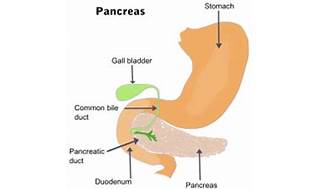A nurse in an emergency department is caring for a client.
The nurse is preparing to discharge the client. Which of the following statements by the client indicate an understanding of the discharge teaching?
Select all that apply.
"I will eat fish for dinner at least twice per week.".
"I will limit my morning coffee to no more than two cups.".
"I will eat small, frequent meals.".
"I should expect my bowel movements to be pale in color".
"I will notify my provider if my urine is dark.".
Correct Answer : C,D,E

The correct answer is choice CDE.
Choice A rationale:
Eating fish for dinner at least twice per week is not specifically recommended for pancreatitis patients. A low-fat diet is generally advised, but the frequency of fish consumption is not a key point in discharge teaching.
Choice B rationale:
Limiting coffee intake is not a primary focus in pancreatitis discharge instructions. While caffeine can irritate the digestive system, the emphasis is more on avoiding alcohol and fatty foods.
Choice C rationale:
Eating small, frequent meals is recommended to avoid overloading the digestive system and to help manage symptoms of pancreatitis.
Choice D rationale:
Pale bowel movements can indicate a problem with bile flow, which is not a normal expectation for pancreatitis patients. This could suggest a complication that needs medical attention.
Choice E rationale:
Dark urine can be a sign of dehydration or liver issues, which should be reported to a healthcare provider as it may indicate a complication.
Nursing Test Bank
Naxlex Comprehensive Predictor Exams
Related Questions
Correct Answer is ["B","C","D","E","F"]
Explanation
Answer is B, C, D, E, F. These are the findings that suggest possible elder abuse or neglect.
- B: Client’s report of lack of food in home. This may indicate neglect by the adult child who is supposed to provide adequate nutrition for the client.
- C: Client’s report of lack of access to bank accounts. This may indicate financial abuse by the adult child who is controlling the client’s money without his permission.
- D: Client’s avoidance of eye contact. This may indicate emotional abuse by the adult child who is intimidating or threatening the client.
- E: Client’s report of weight loss. This may indicate neglect by the adult child who is not meeting the client’s basic needs or physical abuse by the adult child who is causing bodily harm to the client.
- F: Numerous bruises in various stages of healing. This may indicate physical abuse by the adult child who is hitting or injuring the client.
A: ECG results. This is not a finding that suggests elder abuse or neglect. It is a diagnostic test that measures the electrical activity of the heart and can help detect cardiac problems. It does not provide information about the client’s social or emotional well-being.
Normal ranges for vital signs:.
- Temperature: 36.1°C to 37.2°C (97°F to 99°F).
- Heart rate: 60 to 100 beats per minute.
- Blood pressure: less than 120/80 mm Hg.
- Respiratory rate: 12 to 20 breaths per minute.
- SpO2: 95% to 100% on room air. Table for BMI categories:
|
BMI |
Weight Status |
|
Below 18.5 |
Underweight |
|
18.5 to 24.9 |
Normal |
|
25.0 to 29.9 |
Overweight |
|
30.0 and above |
Obese |
The client’s BMI is 18.3, which indicates he is underweight and may be malnourished or have a medical condition that causes weight loss.
Correct Answer is A
Explanation
The correct answer is A. Beneficence. Beneficence is the ethical principle of doing good for the patient and promoting their well-being.
The nurse is demonstrating beneficence by sitting with the client to provide comfort and support during a difficult time.
Choice B is wrong because fidelity is the ethical principle of keeping promises to the patient and being loyal and faithful.
The nurse is not making or keeping any promises to the client in this scenario.
Choice C is wrong because autonomy is the ethical principle of respecting the patient’s right to make their own decisions and choices.
The nurse is not interfering with the client’s autonomy in this scenario.
Choice D is wrong because veracity is the ethical principle of telling the truth to the patient and being honest and trustworthy.
The nurse is not lying or withholding information from the client in this scenario.
Whether you are a student looking to ace your exams or a practicing nurse seeking to enhance your expertise , our nursing education contents will empower you with the confidence and competence to make a difference in the lives of patients and become a respected leader in the healthcare field.
Visit Naxlex, invest in your future and unlock endless possibilities with our unparalleled nursing education contents today
Report Wrong Answer on the Current Question
Do you disagree with the answer? If yes, what is your expected answer? Explain.
Kindly be descriptive with the issue you are facing.
